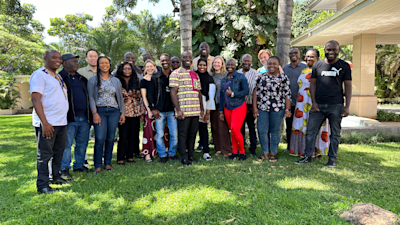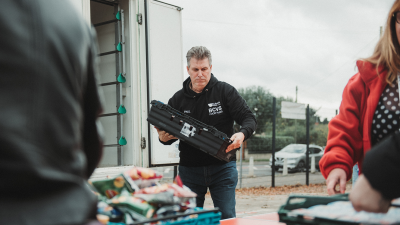
For women living in Uganda, marriage exposed them to a future of danger and a risk of violence ahead of them.
Local customs required men to pay for their wives hand in marriage known as the ‘bride price’. Through financial pressures, the practice often led to the groom resenting the money paid to the bride’s family. Women entering marriage were seen as the property of the man’s, exposing them to violence and brutality.
Atuki is 52 years old and a mother-of-one in the UK. Born in Uganda, Atuki had to flee Uganda when her father was shot in the Uganda Civil War in 1989. Atuki had to move to Kenya with her mother to seek refuge from the violence. There she found stability, gaining a law degree and finding love, before marrying and moving to UK.
Ten years on from her father’s death, Atuki decided to return back to Uganda to fulfil her father’s wish to build a school in his native village of Mifumi, in East Uganda.
Upon her return to Uganda, Atuki set up a project funded by Comic Relief which helped local women affected by domestic violence in the village’s first advice centre for women. Counsellors listened to domestic violence survivors who described the cause of their beatings from their partners were a result of resentment from the ‘bride price.’
In addition to setting up the advice centre, Atuki campaigned for a change in the law, lifting restrictive local customs so that ‘Bride Price’ was no longer seen as a financial burden but as a gift. By doing so, men were allowed to give as much or as little as he wanted to the bride’s family, whilst more importantly it allowed women to escape an abusive relationship so they are no longer bound to repay the money given at the start of the marriage.
‘It changes the context of the marriage,’ said Atuki. ‘Many traditionalists were against abolishing bride price because they said ‘this is part of our culture,’ so we said ‘you don’t have to get rid of it but it should be viewed as a gift.’
Attitudes are slowly changing for people Atuki meet, including the attitudes of the young women in Uganda, who reject the notion of bride price.
‘They say I don’t want to be treated as property. This shows lasting change is possible and it’s happening.’
For women and children who have escaped abusive relationships, projects like MIFUMI have helped provide counselling to help them recover physically, mentally and economically from the violence as well as support to rebuild their lives. Since the law changed, the reported number of domestic violence cases has fallen by more than 30 per cent.
International Women’s Day is on March 8th 2016, a worldwide campaign which aims to raise awareness of women’s rights and stories across the world.
Thanks to your money raised through Sport Relief, community projects like MIFUMI will help communities in Uganda support other vulnerable women get the advice and support a shift in attitudes that will help protect women in violent and abusive marriages.


